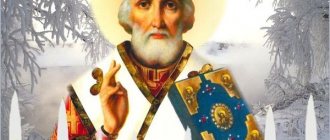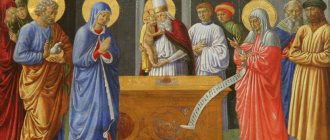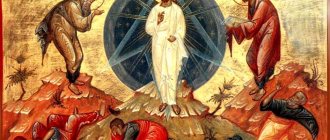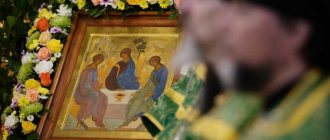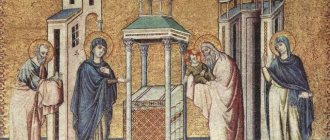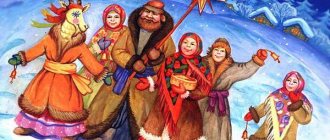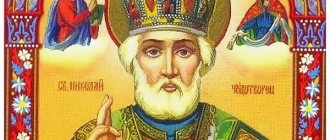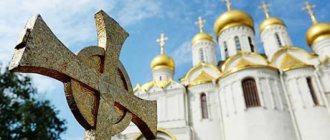The national holiday Elijah's Day, the day of remembrance of the Prophet Elijah, falls on August 2 (July 20 according to the Julian calendar) every year. A traditional folk holiday among the Eastern and Southern Slavs, Greeks, Georgians and some other peoples who converted to Orthodoxy.
Elijah's Day is also celebrated by residents of the vicinity of Mount Carmel - Christians, Jews and Muslims who revere this mountain as a “holy place” - on it, according to the Holy Scriptures, he hid, prayed and defeated the priests of Baal.
Other names for this holiday: Elijah, Elijah's Day, Angry Elijah, Thunderbreaker, Thunderer, Thunderstorm Holder, Dry and Wet, Carrot, Rich Honeycomb.
Elijah is a biblical prophet who lived in the 9th century BC. in the Kingdom of Israel . From an early age he devoted himself to serving the One God. According to the Bible, he was extremely pious and severely rebuked those who violated God's commandments. At this time, the weak-willed ruler Ahab reigned in Israel, whose wife, a Phoenician named Jezebel, was not only distinguished by her licentious behavior, but was also a pagan. Therefore, she decided to excommunicate Israel from monotheism by establishing the cult of pagan Baal.
However, the prophet Elijah appeared as a formidable avenger for the trampling of shrines and for all the sins of the king and his entourage he even sent a three-year famine to the country. But Ahab never repented, and then a competition took place on Mount Carmel between the pagans and Elijah to find out whose altar was more pleasing to heaven - Baal or the one God. Naturally, Elijah won the victory in all respects, after which the prophet personally executed the priests of Baal. After this, the enraged Jezebel vowed to destroy Elijah, and the prophet had to hide from her wrath in the desert for quite a long time.
Having visited different places and performed many miracles, Elijah managed to ensure that Ahab repented of his sins and returned to Judaism. And the wicked Jezebel, after one of her atrocities, suffered a terrible punishment: the wicked woman was thrown out of the window, after which she was trampled by horsemen and torn to pieces by dogs.
In both Judaism and Christianity, it is believed that Elijah was taken to heaven alive. “Suddenly there appeared a chariot of fire and horses of fire, and Elijah went up into heaven in a whirlwind,” says the Fourth Book of Kings. Because of the image of the fiery horses that carried the prophet to heaven, Elijah was popularly nicknamed the Thunderer. Elijah the prophet is considered the master of thunder and lightning, with the help of which he, ascending on a fiery chariot, sweeps across the sky, striking evil spirits.
The Prophet Elijah is revered by all Abrahamic religions: Judaism, Christianity, and Islam. In Judaism, it is believed that the return of Elijah to earth will precede the coming of the Messiah - the savior, who for Christians is personified by Jesus Christ.
The history of the holiday and its essence
Prophet Elijah is the most revered not only in Christianity, but also in Judaism and Islam. He lived 900 years before the birth of Christ. At the moment of Elijah's birth, his father was sent a vision in which angels fed his son with fire and swaddled him in flames. The baby was given the name Ilya, which means “Fortress of the Lord.” This determined his future life.
The grown-up boy, of his own free will, went to live in the desert, where he indulged in prayer and reflection. Returning from voluntary seclusion, Ilya began to fight paganism. Just at this time, a long drought occurred in the kingdom of Israel. People suffered and died without water and food, but remained idolaters.
Then Ilya decided to clearly prove the existence of God. He placed two sacrificial stones on Mount Carmel - one for the god Yahweh, the other for Bal. And he made a sacrifice to both gods. The shaft did not respond to the calls of the priests, and lightning struck the second sacrificial stone and it began to rain. The miracle that appeared so amazed the Israelis that they adopted Christianity. For this merit, Ilya was taken alive to heaven - a fiery chariot drawn by four white horses descended after him.
Christians believe that Elijah the prophet carries out God's fair judgment. Punishes sinners, frightens the infidels and keeps evil spirits in check.
According to the beliefs of our ancestors, the future harvest and fertility of the field depended on Elijah the Prophet. If a drought occurred, it was he who was asked for rain. Unmarried girls prayed for a successful marriage.
Congratulations in prose
May Prophet Elijah bestow you and your loved ones with good luck, health, joy and other blessings! May he protect you from bad misfortunes. I wish you more true friends and peace of mind! And may the saint bless your every endeavor!
***
May the holy prophet Elijah bless your home. May happiness, good luck and cheerful laughter never leave him. May there be many more sunny and joyful days in your life than gloomy ones. Let your heart be filled with goodness, sincerity, faith and love. Happy Elijah Day!
Prayer to the Prophet Elijah
O holy prophet of God Elijah, pray for us, the Lover of God, that He may give us, the servants of God (names), the spirit of repentance and contrition for our sins, and with His omnipotent grace help us to leave the paths of wickedness, and to succeed in every deed of grace, and in may he strengthen us in the fight against our passions and lusts; May the spirit of humility and meekness, the spirit of brotherly love and kindness, the spirit of patience and chastity, the spirit of zeal for the glory of God and good care for our salvation and our neighbors, implant into our hearts. Turn away from us the righteous wrath of God by your intercession, so that having lived in peace and piety in this world, we will be worthy of the communion of eternal blessings in the Kingdom of our Lord and Savior Jesus Christ, to Him befits honor and worship, with His Beginning Father and the Most Holy Spirit, forever centuries. Amen.
What date is Ilyin’s day?
Elijah's Day is one of the important holidays, which is revered on a par with Christmas, Epiphany and Easter.
The Ascension of Elijah the Prophet is celebrated by Orthodox Christians on August 2 in the new style (July 20 in the old style) with prayers and services. In addition, divine liturgies and religious processions are held.
Even during pagan times, our ancestors dedicated this day to the god of war and military valor, Perun. His attributes, like those of Elijah the prophet later, were thunder and lightning. According to popular beliefs, Elijah the Prophet, like Perun, is the patron saint of the military. It’s not for nothing that Airborne Forces Day is celebrated on August 2.
What to pray to a saint for
All these, as well as many other customs, signs of Elijah’s day were intertwined with the completely ecclesiastical practice of performing prayers to the saint.
- Most often they prayed to him for the preservation of the harvest, right in the field, with the blessing of water. At the same time, each owner put an ear of grain from his allotment into the holy water.
- There were also prayers for rain, or - when the weather was inclement - for its cessation. Often the village had several temples of the prophet, called “Ilya the Wet” (here they mainly asked for an end to the drought) and “Ilya Sukhoi” (where they prayed to stop the bad weather).
Rituals for Elijah's Day
Previously, the inhabitants of villages and hamlets celebrated this holiday with the whole community. They prepared for the celebration in advance. On Elijah’s day everyone gathered together and danced in circles. The traditional dish is a young bull or lamb, which was symbolically sacrificed.
What should have been done
Elijah the prophet was addressed as the executor of God's law and as a protector from dark evil forces.
Our ancestors had traditions that were associated with this day:
- Washing with clean spring or rain water. Protected against diseases and the evil eye.
- Collection of honey and wax. Candles made from such wax are believed to be endowed with energy that protects against all evil.
- Visiting church and praying to Elijah the prophet.
What not to do on Elijah's Day
It is believed that August 2 is the day when Elijah the Prophet drives away and destroys the insidious and cunning evil spirits. Our ancestors protected themselves and their property from the machinations and machinations of evil forces. For this they:
- They locked the windows and doors to prevent demons from getting inside.
- They threw a stick, grip, poker or frying pan into the yard like a lightning rod.
- They turned all the empty dishes upside down so that evil spirits, fleeing from the lightning of Elijah the Prophet, would not hide in the house and attract lightning to it.
- They did not extinguish what caught fire from lightning that day. Putting out the “heavenly fire” was considered a sin.
Conspiracies
Ilyin’s Day, according to Slavic tradition, is considered a magical date, which is suitable not only for carrying out various rituals. No less common were conspiracies that were designed to bring good luck and happiness.
The following are considered common:
- Spells for good health and protection from disease. There are many different options - some help get rid of the disease, and some are aimed at protection.
- The prosperity conspiracy, which was carried out on poppy seeds, was supposed to increase profits and give wealth. The seeds could not be swept out of the house for 3 days, and after that they were taken under a tree.
- Water spells were usually used by merchants to attract customers. The main focus is on distributing goods and making the store more popular.
- Fidelity plot for young girls. The sacred words were read by throwing a stone with a lock of hair tied into the water. They also charmed the dew at dawn to find a groom.
No less common were conspiracies aimed at removing damage and protecting against evil witchcraft. Some of them are more like rituals, so various objects may appear there - candles, bowls, herbs, etc.
Signs about Elijah's Day
Like any significant day in the life of our ancestors, Elijah’s Day also has a large number of signs. Many of them are still relevant today.
Weather signs
Weather has always been of utmost importance in the lives of peasants. It always depended on weather conditions how they would survive the coming winter: whether they would starve or not, whether there would be a profit on the farm or a loss. That is why there are so many signs associated with various natural phenomena.
Weather signs for Ilyin’s day - August 2:
- Sunny weather foreshadowed a fire.
- Long, distant thunder is a sign of inclement weather.
- Heavy rain on Ilya promises a rich harvest of millet. Getting caught in the rain means being healthy for a whole year.
General signs for Elijah's day
On Ilya's day, summer ended and autumn began. Our ancestors said: “On Ilya before lunch it’s summer, after lunch it’s autumn.”
After this day, it was forbidden to swim in rivers and lakes. It was believed that evil spirits were hiding from Elijah the Prophet in bodies of water, so swimming was strictly forbidden, so that mermen and mermaids would not drag them to the bottom. In addition, if you went swimming on August 2, you could get seriously ill.
On Elijah's Day it was forbidden to work around the house or in the field. They feared that a working person could bring displeasure to the formidable prophet over the entire village. Therefore, if someone violated the ban, then his tools were taken away and burned.
On Elijah’s Day, people did not go to the crossroads, as this was a favorite place of evil spirits. On August 2, our ancestors preferred to stay at home or participate in the celebration.
Who is Ilya
The holiday is named after the biblical prophet Elijah. Elijah was born and lived almost a thousand years before the birth of Jesus Christ. From an early age he sincerely believed in God, and when he grew up, he became a prophet. His prophecies always came true, and thus, many people, thanks to Elijah, also believed in God. The prophet lived modestly and alone in the desert. However, he did not care at all about food and drink. Biblical legend says that birds and animals brought him food and drink. Of course, Elijah preached God in every possible way and proved in every possible way that there is nothing more important for a person than faith.
For his pure, ascetic life, God showed Elijah special mercy - he took him to heaven alive. That is, all other people, before going to heaven, first died, but Ilya is a unique case in the history of mankind.
Church tradition, based on verses from the Bible, says that before the Last Judgment, Elijah will once again appear on earth. His coming will be one of the harbingers of the imminent coming of Christ, who will appear in the human world to judge all people according to their faith and deeds.
Elijah's Day is an official holiday of the Russian Orthodox Church. It is celebrated on August 2. Moreover, it is very solemn, since it is considered one of the most important Christian holidays.
However, as is always the case in Rus', the church veneration of the prophet Elijah was mixed among the people with half-fairy-tale, half-pagan traditions, signs and beliefs. Among them there are also quite serious (that is, proven by life) signs, and there is also free folklore. And, what is most interesting, most of these signs, traditions and beliefs are still alive. Especially in the Russian outback, where the people, as they say, are closer to God.
Let's talk about all this in more detail.
Traditions on Elijah's Day
Previously, the church occupied a central place in the life of every person. Therefore, church holidays were the main significant events. Celebrating Elijah's Day is no exception.
Tradition of “brotherhood”
An important tradition on Elijah’s Day was the holding of common meals with the slaughter of a ram or a bull, which are also known as “bull-killers” or “prayers.” This was a sacrifice for the harvest, family well-being and the fertility of domestic animals.
The ceremony was performed by men. Residents of the villages nearby the church drove all their cattle to the church compound. The priest sprinkled the animals with holy water. After the completion of the holy mass, the animal purchased with public money was slaughtered. The most respected person in the village performed the sacrifice.
In order for Elijah the Prophet to provide clear weather during the harvest and haymaking, an unbleached red bull was sacrificed. The slaughter was performed while the bells were ringing with a special long sacrificial knife
.
Bull or lamb meat was boiled in a common cauldron and distributed for a symbolic sum to each of those present. The money collected was given to the church. The blood of the sacrificial animal was smeared on the forehead and eyes, and on the cheeks of children, so that the strength and health of the animal would be transmitted to people.
Fertility Traditions
Immediately after the holiday, in some areas even on the same day in the evening, the villagers began to harvest. Housewives went to the field in the evening in order to weave a symbolic cross from three ears of grain or three bunches of ears of grain, and leave it on the field.
On the first day of the harvest, they baked bread, prayed, and, leaving this bread and salt on the table, went to work in the field. Harvesting bread was accompanied by rituals and special songs. The compressed spikelets were carried into the house and placed in the red corner behind the icons. On Spas - August 19 - they were threshed, and they were sure to be sown next year.
The spikelets were believed to have healing powers. A belt was woven from nine rye ears. After the first sheaf was compressed, a sickle was placed on the lower back on top of the belt. This ritual protected against lumbar pain.
They always left a small unharvested area on the field in order to thank Elijah the prophet for the harvest. This ritual was called “beard curling.” The ears of corn were tied in a bunch and bent to the arable land, and a piece of bread was placed under them, and they said: “Here is a beard for you, Ilya - for next summer, produce us some rye and oats.”
Signs about animals
Our ancestors believed that all evil spirits were saved from the lightning of Elijah the Prophet and turned not only into wild animals, but also into domestic ones. Therefore, on this day, not a single animal was allowed into or out of the house, for fear of werewolves. After all, Elijah could strike with lightning the house in which the spirit of darkness is located.
On this day, the peasants began hunting forest predators. They believed that by killing foxes and wolves on this day, they also destroyed the evil spirits that possessed them. It was considered a particularly good sign to kill a seasoned wolf.
Fishermen would throw away fish caught during a thunderstorm if they had red eyes. They believed that such a fish was possessed by a demon.
Traditions related to the household
The traditions of Ilyin's day did not ignore women's troubles. Women were not supposed to go to the garden on this holiday: the cucumbers could rot and the cabbage could become soft. And then you can’t prepare any preparations from them.
But, at the same time, if you dig up young potatoes on this day and cook them, then the potato harvest this year will be excellent.
Whether to believe in all the signs on Elijah’s Day, whether to observe traditions and rituals - everyone decides for himself. But the traditions of our ancestors cannot be completely ignored and treated with irony. Perhaps our great-grandparents did not have the information that is available now, but they knew how to observe and draw conclusions. And this is already a lot. And why not put such knowledge into practice?
